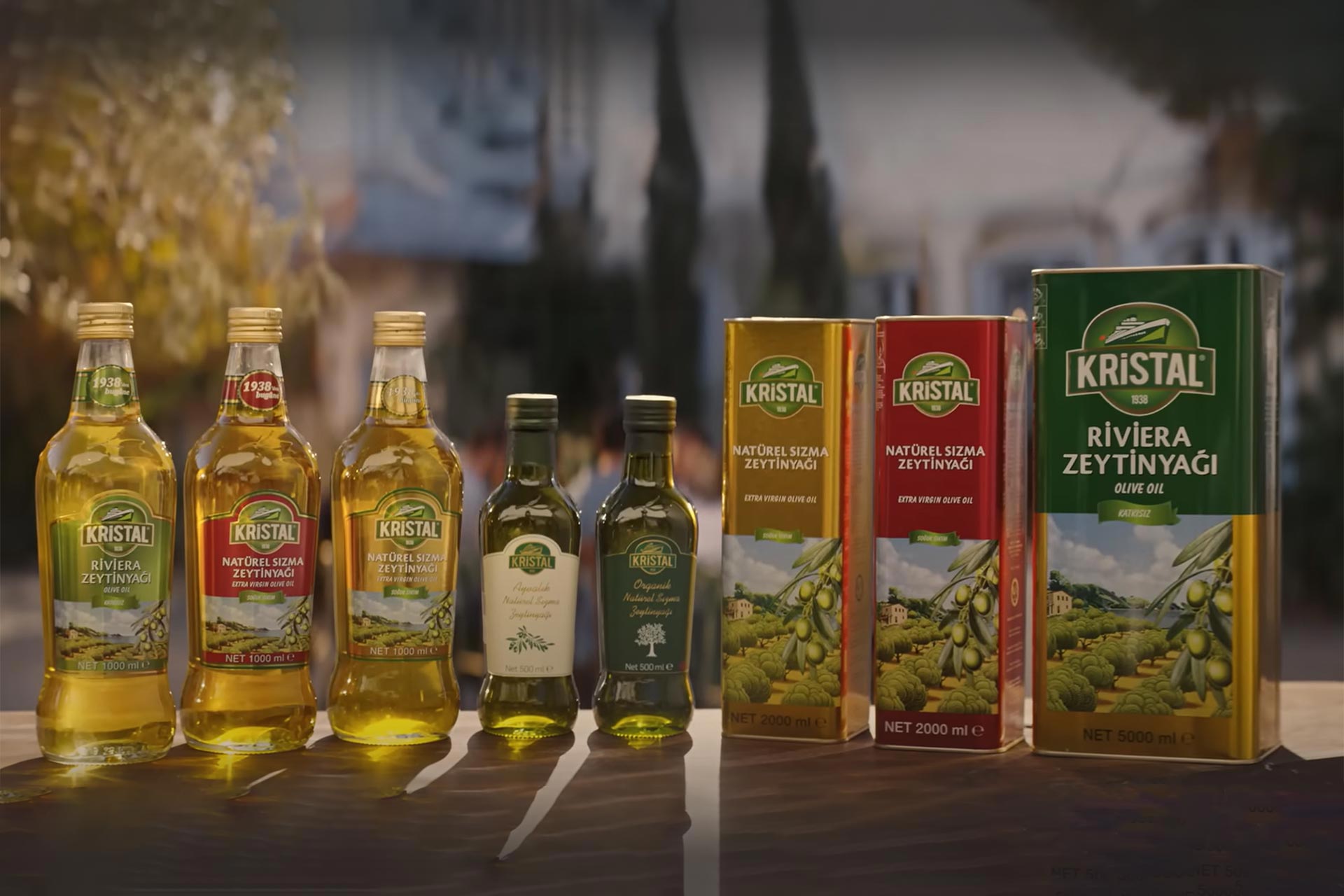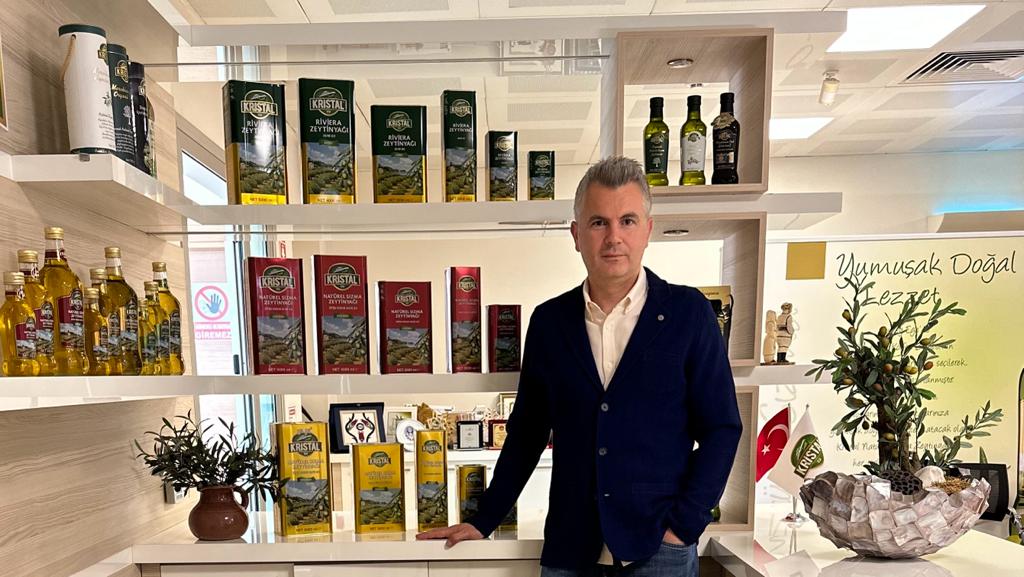Founded in 1938 in Izmir, Kristal Oil, one of Türkiye’s first branded olive oil, is proud to be the first Turkish brand to export packaged and branded olive oil. Today, the company exports olive oil to over 35 countries. Continuing its international initiatives launched with the vision of meeting the expectations of olive oil lovers “without compromising on quality,” the company became the first Turkish company to establish an olive oil production and marketing company in Valencia, Spain, in 2018. Vural Gozgec, General Manager of Kristal Oil, said, “With the support of Turquality, the state-sponsored branding program, we contribute to promoting Turkish olive oil on the global stage and increase our exports of packaged products every year.”
Exports of Packaged Olive Oil Under the Kristal Brand Increase Every Year
Providing information about Kristal Oil’s export plans, Gozgec said, “The emphasis we’ve placed on exports in the last two years has begun to bear fruit. We export Turkish olive oil to 35 countries under the Kristal brand from our factory in Izmir. Additionally, we extend our exports to various countries worldwide from our company in Spain, again under the Kristal brand. Our presence in Spain increases the competitiveness of the Kristal brand within the European Union (EU). This strategic positioning allows us to cater to all global markets, from Spain to the Far East.”
Kristal Oil Continues Investments in the Sector
Stating that Kristal Oil, as one of the most significant players in the olive oil sector, continuously invests in the sector, Gozgec provided information about the modernization and institutionalization efforts underway. Gozgec summarized the process as follows, “In our high-capacity modern refinery facility, raw olive oil undergoes entirely physical production processes using water vapor technology without any chemical treatment. The natural filtration area was supported by chrome tanks and temperature-controlled environments. Our pressing plant in Ayvalik was modernized in 2016 and 2022, increasing its capacity. Additionally, as a subsidiary of Arkas Holding, we have made significant investments in human resources over the last five years.”
Kristal Türkiye Collection
Gozgec highlighted that in this process, they revitalized olive varieties that were on the verge of being forgotten in various regions and shared the olive oil obtained with consumers. He stated, “One of our most meaningful projects is the ‘Project to Protect Regional Flavors and Olive Varieties,’ which we initiated with the mission of safeguarding the cultural heritage of our country. Within the scope of this project, we offered extra virgin olive oil obtained from forgotten and lesser-known olive varieties grown in different regions of Anatolia to our consumers under the name ‘Kristal Türkiye Collection.’ The collection includes extra virgin olive oil produced from Kilis Yaglik, Sari Ulak, and Hatay Saurani varieties.”
With its investment, Kristal Oil entered the olive market under the Kristal brand. Providing information on this subject, Gozgec said, “Olives are an essential flavor on our tables. The olive market remains a continuously evolving and expanding market. Kristal entered the domestic olive market with our own brand in 10 kg packages. In 2025, we will expand to foreign markets with our small-sized packaged olive products. We produce additive-free products for our consumers, including black and green olive products made by using natural methods.”
Challenges Faced by the Olive Oil Sector
Gozgec pointed out that the biggest challenge in the olive oil market is adulteration and restrictions on olive oil exports. He emphasized that unregulated sales have surged, particularly on online platforms. Gozgec said, “Consumers desire to consume olive oil, but with decreasing purchasing power, they may turn to less reputable sources. As inspections against adulteration are heightened, there should also be a proportional increase in criminal sanctions to act as a deterrent.”
Emphasizing that the restrictions imposed on olive oil exports in recent years have negatively impacted the sector, Gozgec said, “Expecting domestic prices to decrease with measures limiting olive oil exports would be going against the current. This is because olive oil prices are influenced by developments in the Mediterranean basin. The harvest in Spain and the level of carryover stocks directly affect the market.”



